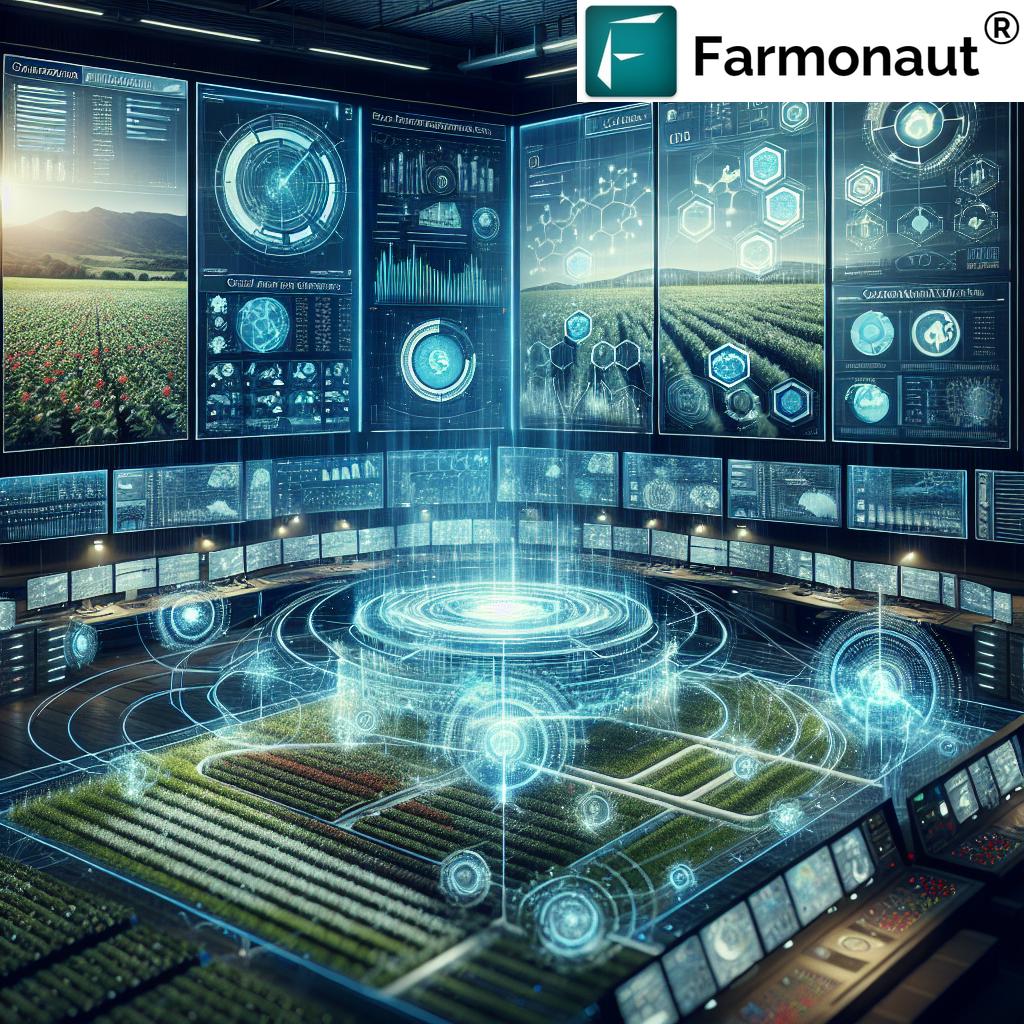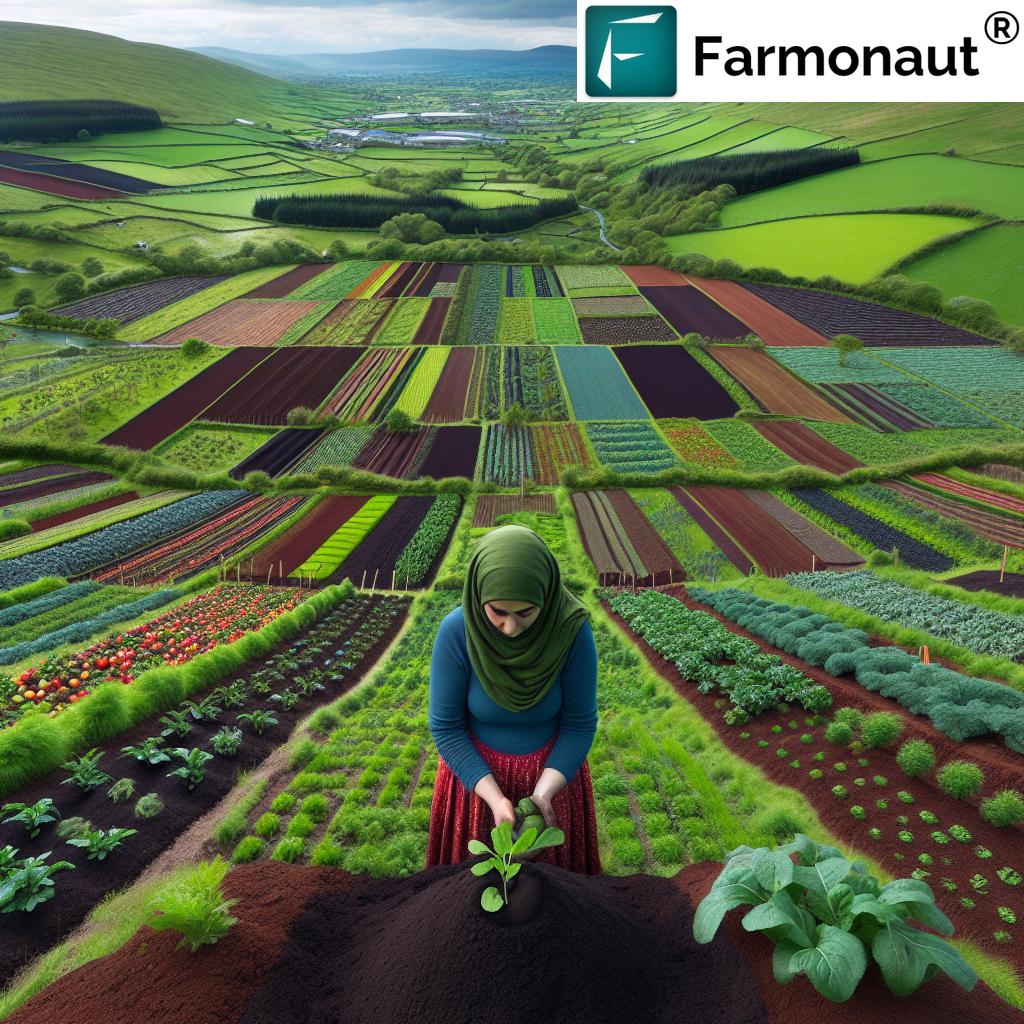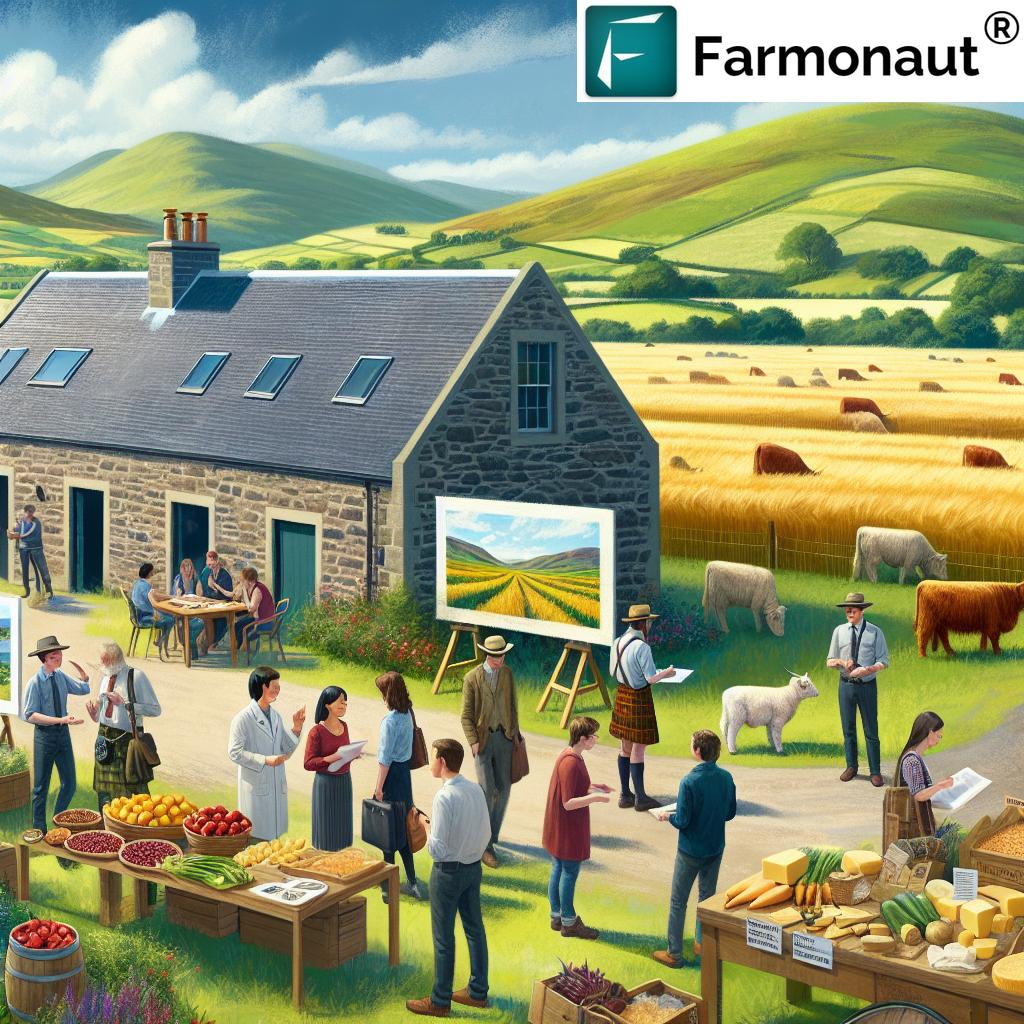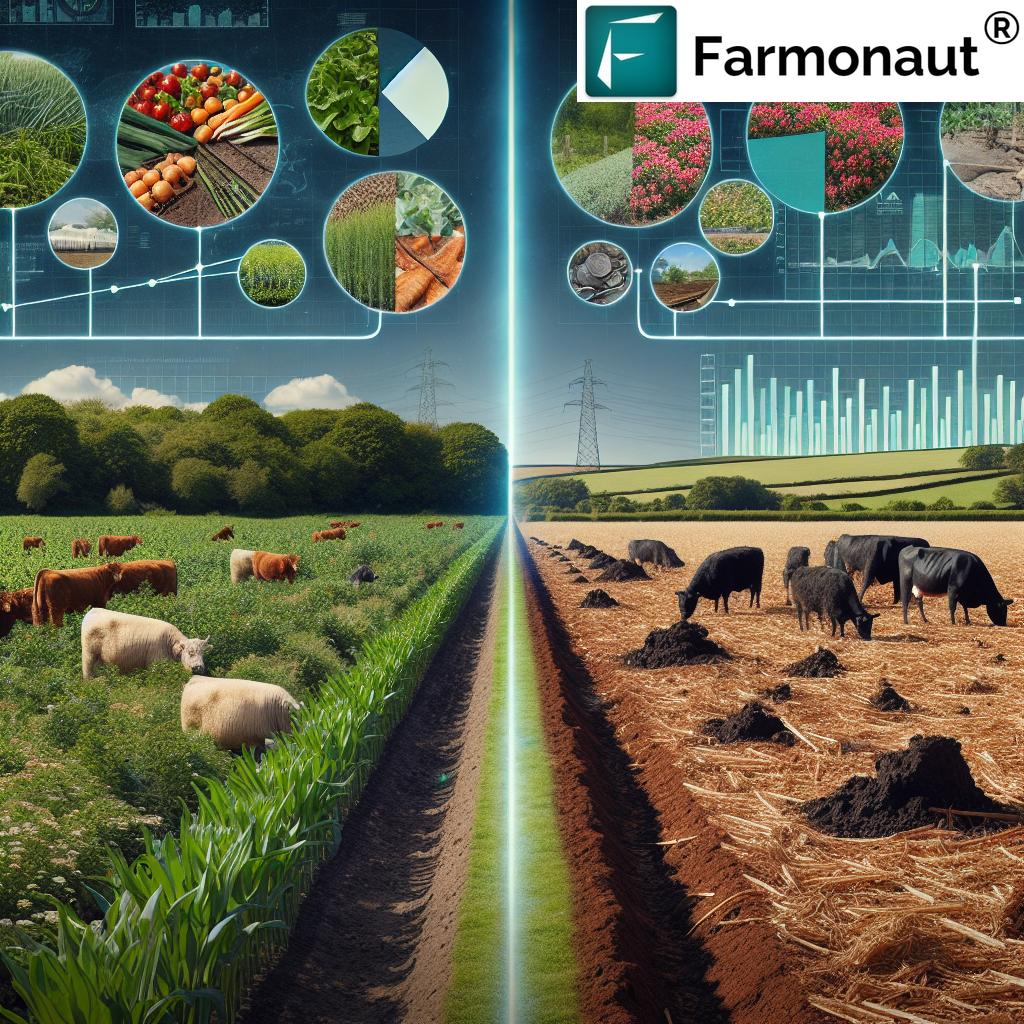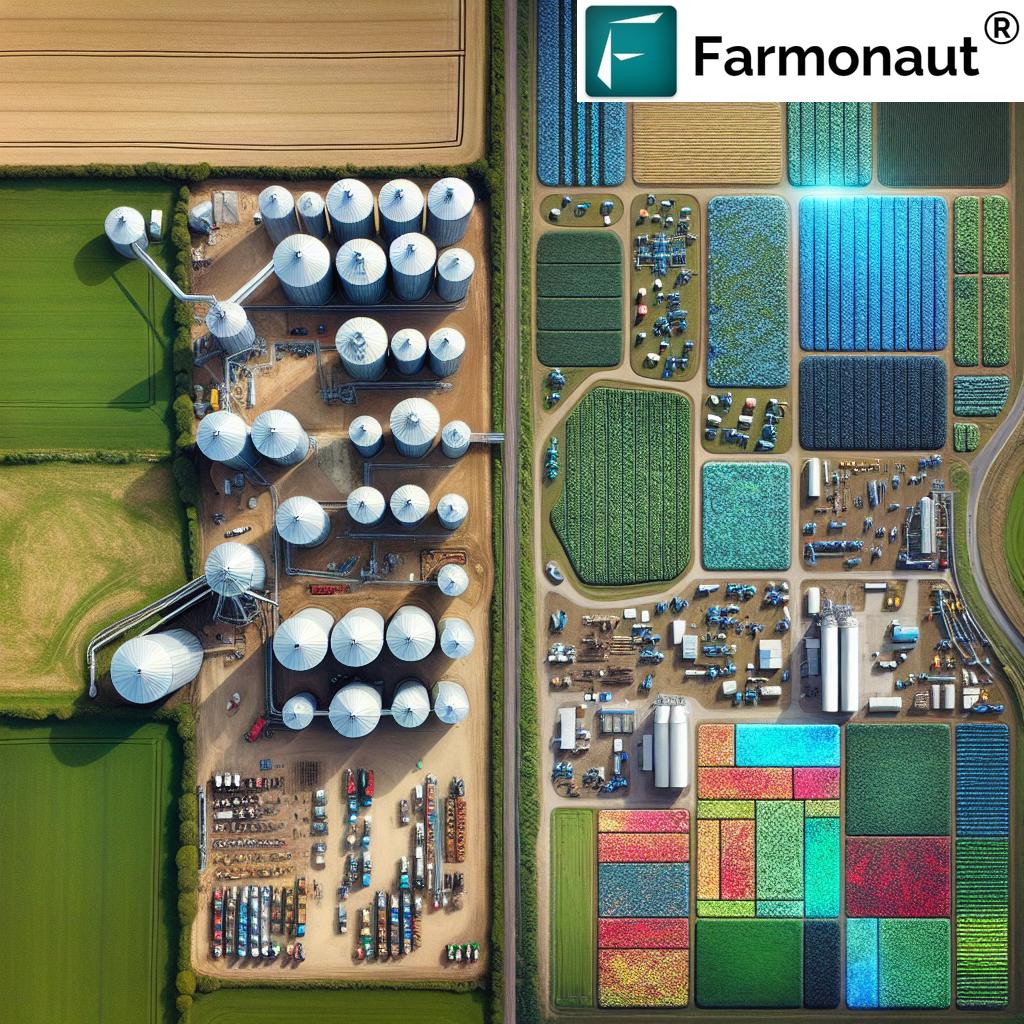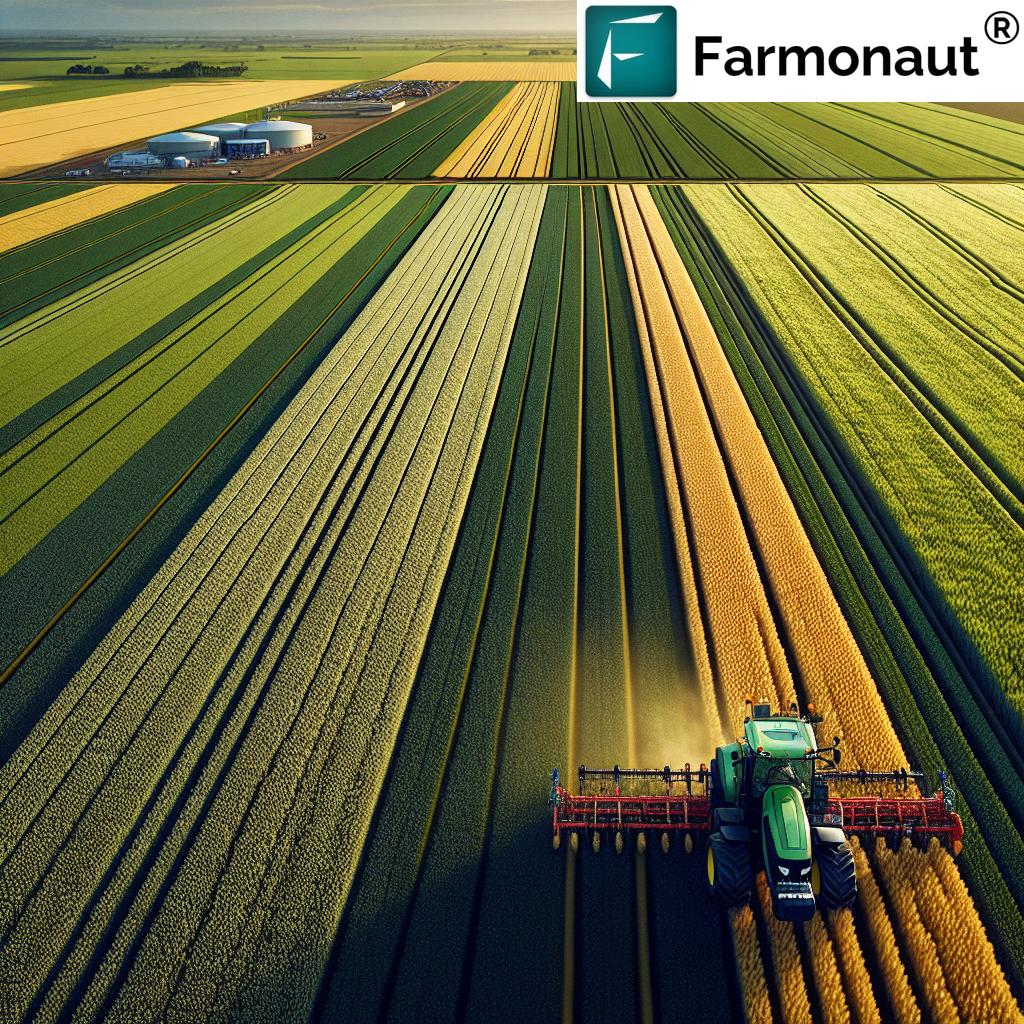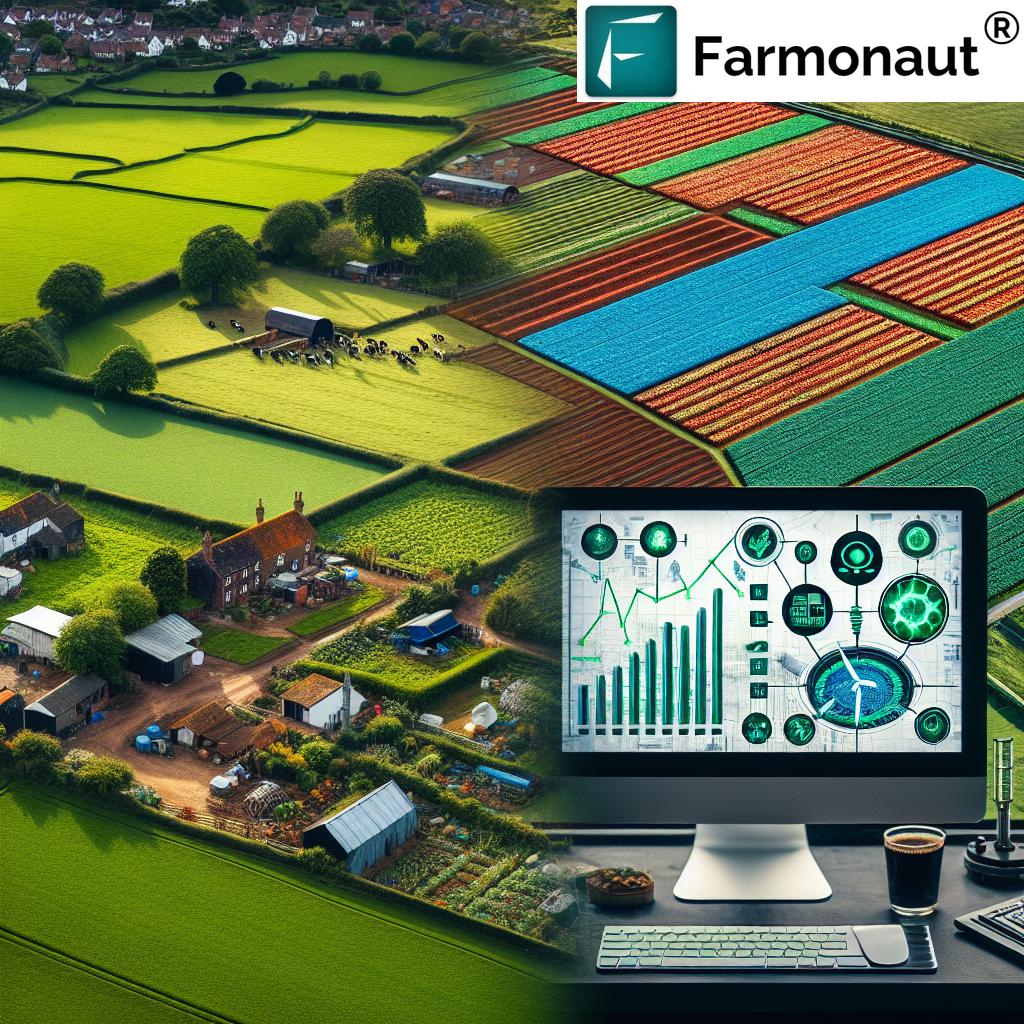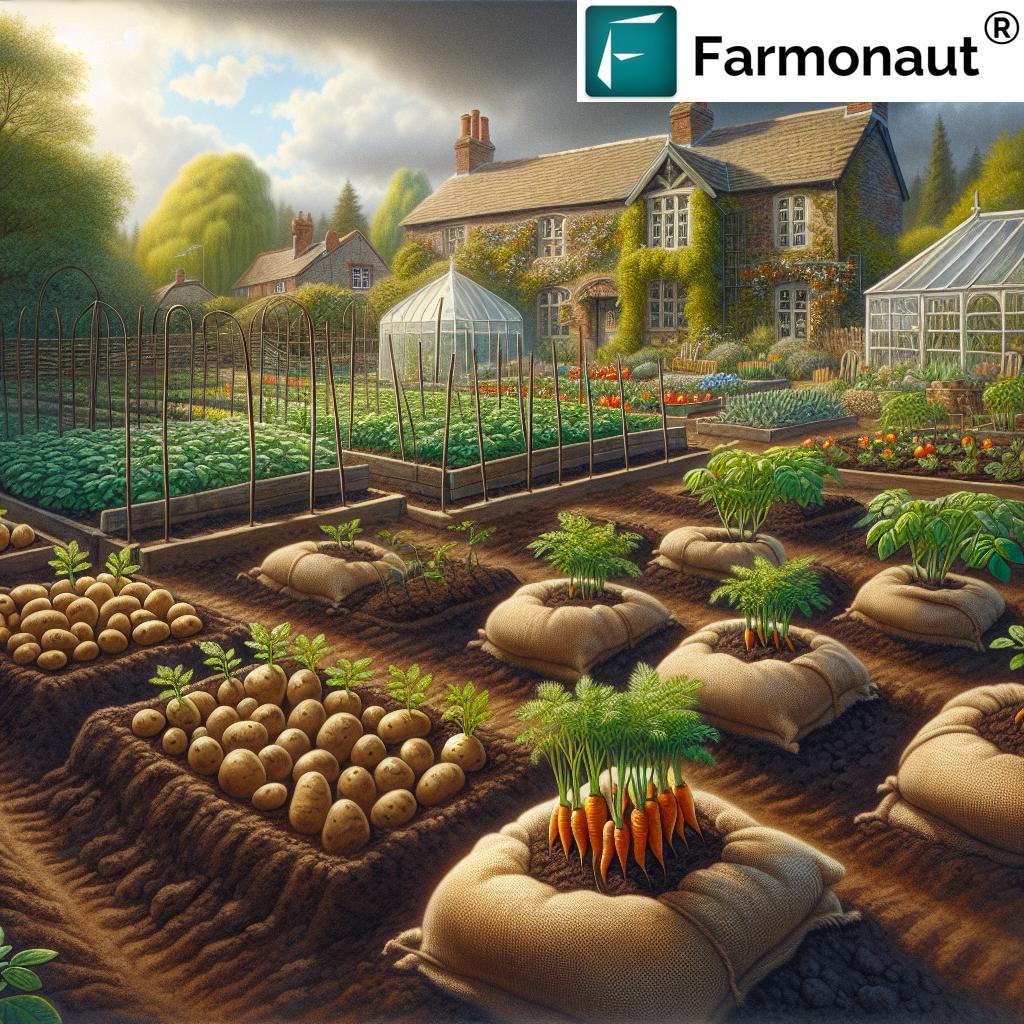Exposing Farmwashing: The Urgent Fight for Sustainable British Agriculture and Family Farm Preservation
We are facing a critical moment in British agriculture. As advocates for sustainable farming practices and supporters of local food sourcing, we must address the alarming trend of “farmwashing” that threatens the very fabric of our rural communities and the future of family farms across Britain. This deceptive practice not only misleads consumers but also undermines the hard work and dedication of genuine British farmers who strive to produce high-quality, sustainable produce for our tables.
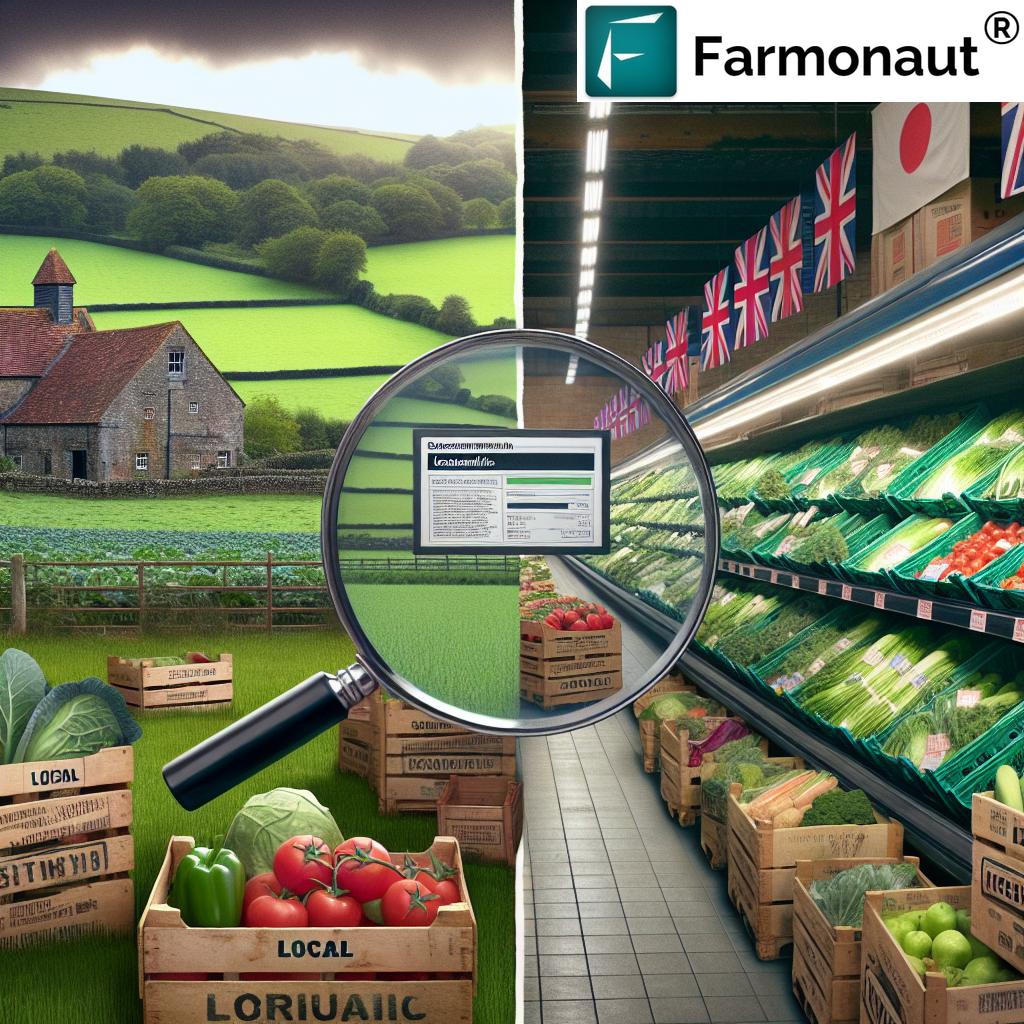
“Farmwashing” practices by UK supermarkets affect up to 70% of small family farms, threatening local agriculture sustainability.
The Rise of Farmwashing in British Supermarkets
In recent years, we’ve witnessed a disturbing trend in the UK retail sector. Supermarkets, driven by profit margins and market competition, have increasingly engaged in “farmwashing” – a practice where imported produce is deceptively marketed as locally sourced. This misleading tactic not only betrays consumer trust but also poses a significant threat to the livelihood of British farmers and the sustainability of our agricultural sector.
- Deceptive marketing practices
- Misrepresentation of product origin
- Undermining local farmers’ efforts
The impact of farmwashing extends far beyond simple consumer deception. It strikes at the heart of our rural economy, eroding the viability of family farms and threatening the rich agricultural heritage that has long been a cornerstone of British identity. As we delve deeper into this issue, we’ll explore how these practices affect various aspects of our food system and what we can do to combat them.
The True Cost of Imported Produce
While supermarkets may tout lower prices as a benefit of imported produce, the true cost to our society and environment is far greater. Let’s examine the hidden impacts:
- Increased carbon footprint due to long-distance transportation
- Loss of nutritional value in transit
- Reduced food security and reliance on international supply chains
- Economic drain on local farming communities
By choosing imported produce over local options, we inadvertently contribute to a cycle that undermines the very foundations of sustainable British agriculture. It’s crucial that we, as consumers and citizens, understand the broader implications of our purchasing decisions.
The Struggle of Family Farms Against Mega-Farm Competition
Family farms are the backbone of British agriculture, yet they face unprecedented challenges in today’s market. The rise of mega-farms, often backed by corporate interests, has created an uneven playing field where small-scale farmers struggle to compete.
- Economies of scale favor large operations
- Pressure to adopt intensive farming practices
- Difficulty accessing markets and fair prices
These challenges are exacerbated by farmwashing practices that flood the market with cheaper, imported alternatives masquerading as local produce. To preserve our agricultural heritage and ensure a sustainable future, we must support policies and practices that level the playing field for family farms.
Environmental Sustainability Concerns in Farming
The environmental impact of our current agricultural system is a pressing concern. Sustainable farming practices are not just a buzzword; they’re essential for the long-term health of our planet and food security.
- Soil degradation and loss of biodiversity
- Water pollution from intensive farming methods
- Greenhouse gas emissions from agriculture
By supporting local, sustainable farms, we can mitigate these environmental impacts and promote more resilient agricultural systems. Technologies like those offered by Farmonaut can play a crucial role in helping farmers optimize their practices for environmental sustainability.
The Importance of Supporting Local Food Sourcing
Local food sourcing is more than just a trend; it’s a vital component of a healthy, sustainable food system. When we choose locally produced food, we’re not just getting fresher, more nutritious produce – we’re also supporting our local economy and reducing our environmental impact.
- Shorter supply chains mean fresher produce
- Direct support for local farmers and rural communities
- Reduced transportation emissions
- Greater transparency and traceability in food production
By prioritizing local food sourcing, we can create a more resilient and sustainable food system that benefits farmers, consumers, and the environment alike.
UK Agricultural Policy Implications
The future of British agriculture hinges on the policies we implement today. As we navigate the post-Brexit landscape, it’s crucial that our agricultural policies support sustainable farming practices, protect family farms, and promote transparency in food labeling and marketing.
- Subsidies that favor sustainable practices
- Stricter regulations on food labeling and origin claims
- Support for young farmers and new entrants to agriculture
- Investment in rural infrastructure and services
We must advocate for policies that prioritize the long-term health of our agricultural sector over short-term profits for large corporations and retailers.
Rural Community Development Challenges
The health of our rural communities is inextricably linked to the success of local agriculture. As farmwashing practices undermine local farmers, they also threaten the vitality of rural Britain.
- Loss of agricultural jobs and related services
- Declining rural populations and services
- Erosion of traditional farming knowledge and skills
To address these challenges, we need comprehensive rural development strategies that support not just farming, but the entire ecosystem of rural life.
Explore Farmonaut’s API for agricultural insights
The Complexities of Organic Vegetable Production
Organic vegetable production represents a significant opportunity for British farmers to meet growing consumer demand for sustainable, healthy food. However, it also comes with unique challenges:
- Higher labor costs and lower yields
- Pest and disease management without synthetic chemicals
- Certification and compliance costs
- Market competition from imported organic produce
Despite these challenges, organic farming offers numerous benefits, including improved soil health, biodiversity, and potentially higher profit margins. Supporting British organic farmers is crucial for expanding sustainable agriculture practices across the UK.
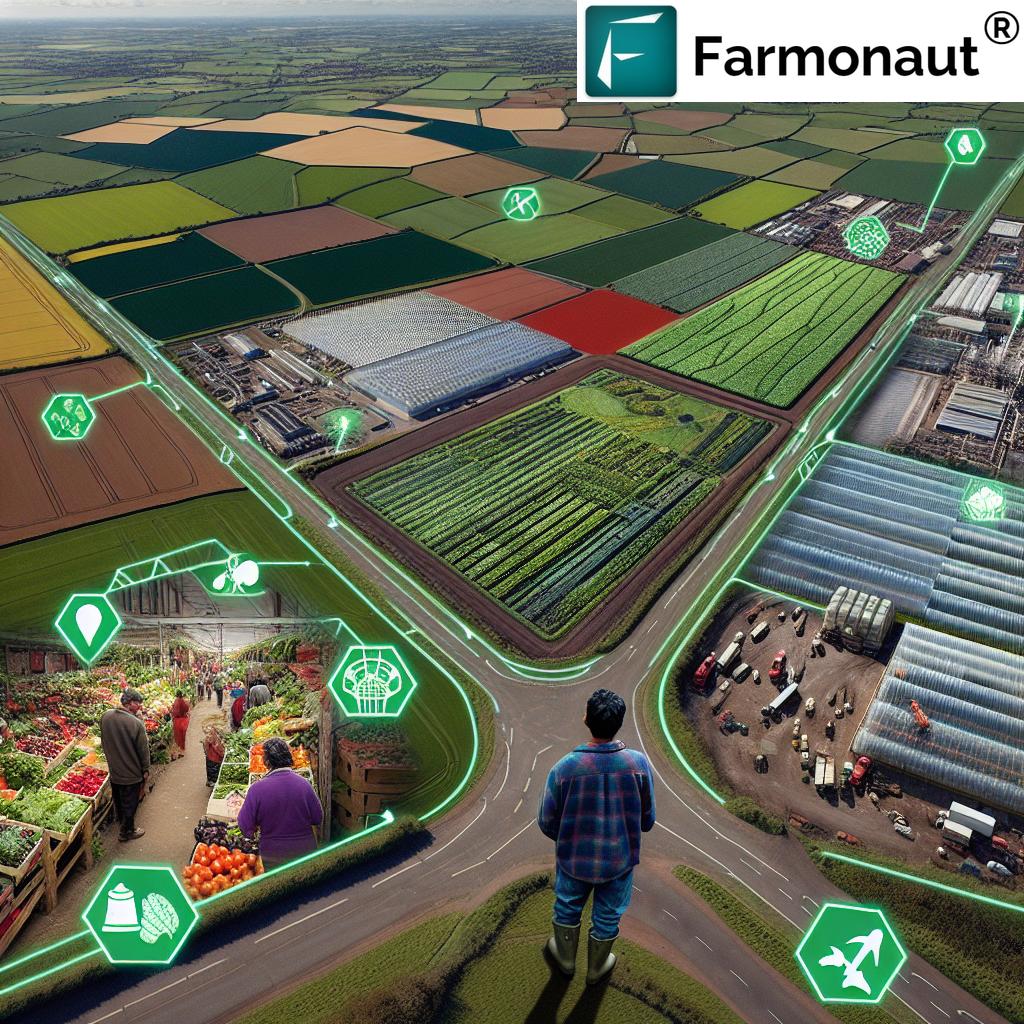
Over 40% of “locally sourced” produce in British supermarkets is actually imported, misleading consumers about food origin.
The Need for Transparency in Food Retail
Transparency in food retail is essential for rebuilding trust between consumers, retailers, and farmers. We must demand clear, accurate information about the origin and production methods of our food.
- Mandatory country of origin labeling for all produce
- Clear identification of farming methods (e.g., organic, conventional)
- Information on supply chain and food miles
- Disclosure of any post-harvest treatments or modifications
By pushing for greater transparency, we can empower consumers to make informed choices that support British farmers and sustainable agriculture.
Technology’s Role in Combating Farmwashing
In the fight against farmwashing, technology can be a powerful ally. Innovative solutions like those offered by Farmonaut provide farmers with tools to optimize their operations and compete more effectively in the market.
- Satellite-based crop monitoring for improved yields
- AI-driven advisory systems for better decision-making
- Blockchain technology for supply chain transparency
- Data-driven insights for resource management
By leveraging these technologies, British farmers can enhance their productivity, reduce costs, and provide verifiable evidence of their sustainable practices to consumers.
Access Farmonaut’s API Developer Docs
The Farm-to-Table Movement: Challenges and Opportunities
The farm-to-table movement has gained significant momentum in recent years, offering a promising avenue for connecting consumers directly with local farmers. However, farmwashing practices threaten to undermine this movement by blurring the lines between genuine local produce and imported alternatives.
- Building direct relationships between farmers and consumers
- Educating the public about seasonal eating and local agriculture
- Developing local food infrastructure (e.g., farmers markets, CSAs)
- Overcoming logistical challenges in local food distribution
By supporting and expanding farm-to-table initiatives, we can create a more resilient local food system that benefits both farmers and consumers.
Consumer Education and Advocacy
Empowering consumers with knowledge is crucial in the fight against farmwashing. We must work to educate the public about the importance of supporting local agriculture and how to identify genuine British produce.
- Developing consumer guides to seasonal British produce
- Creating awareness campaigns about the impact of food choices
- Promoting farm visits and agricultural education programs
- Encouraging critical engagement with food marketing and labeling
By fostering a more informed and engaged consumer base, we can create demand for truly local, sustainable produce and push back against deceptive marketing practices.
The Role of Government and Regulation
Effective government intervention and regulation are essential in addressing the issue of farmwashing and supporting sustainable British agriculture. We need a comprehensive approach that includes:
- Stricter enforcement of labeling laws and origin claims
- Incentives for retailers to prioritize local sourcing
- Support for small-scale farmers in accessing markets
- Investment in rural infrastructure and agricultural research
By advocating for these policies, we can create a more level playing field for British farmers and protect consumers from misleading marketing practices.
Building a Sustainable Future for British Agriculture
The fight against farmwashing is ultimately about securing a sustainable future for British agriculture. This requires a holistic approach that addresses environmental, economic, and social aspects of farming:
- Promoting regenerative agricultural practices
- Supporting young farmers and new entrants to agriculture
- Developing local food processing and distribution infrastructure
- Fostering innovation in sustainable farming technologies
By working together – farmers, consumers, policymakers, and technology providers – we can create a resilient and thriving agricultural sector that serves the needs of both current and future generations.
Comparison: Genuine Local Produce vs. Imported “Farmwashed” Products
| Aspect | Genuine Local Produce | Imported “Farmwashed” Products |
|---|---|---|
| Average food miles | 50-100 miles | 1,500-3,000 miles |
| Carbon footprint (estimated CO2 emissions) | 0.1-0.5 kg CO2e per kg | 2-5 kg CO2e per kg |
| Farmer’s profit margin (%) | 15-25% | 5-10% |
| Shelf life (days) | 5-10 days | 14-21 days |
| Nutritional value retention (%) | 90-100% | 60-80% |
| Local economy impact (estimated contribution to local GDP) | 0.5-1% of local GDP | 0.1-0.3% of local GDP |
Call to Action: Supporting British Agriculture
As we conclude this exploration of farmwashing and its impact on British agriculture, it’s clear that action is needed on multiple fronts. Here’s how you can make a difference:
- Choose locally sourced produce whenever possible
- Ask retailers for clear information about product origins
- Support farmers’ markets and community-supported agriculture programs
- Advocate for stronger labeling laws and support for British farmers
- Educate yourself and others about the importance of sustainable agriculture
Together, we can create a more transparent, sustainable, and resilient food system that supports British farmers and provides healthy, local food for all.
FAQs
- What is farmwashing?
Farmwashing is the practice of misleadingly marketing imported produce as locally sourced, deceiving consumers and undermining genuine local farmers. - How can I identify truly local produce?
Look for clear country of origin labeling, ask retailers for information, and familiarize yourself with seasonal British produce. - Why is supporting local farms important?
Supporting local farms helps maintain rural communities, reduces food miles, ensures fresher produce, and contributes to local economic resilience. - What are the environmental benefits of buying local?
Buying local reduces transportation emissions, supports biodiversity, and often involves more sustainable farming practices. - How can technology help combat farmwashing?
Technologies like satellite monitoring and blockchain can improve transparency in the supply chain and help farmers optimize their operations.





